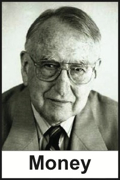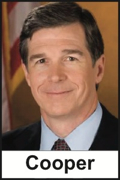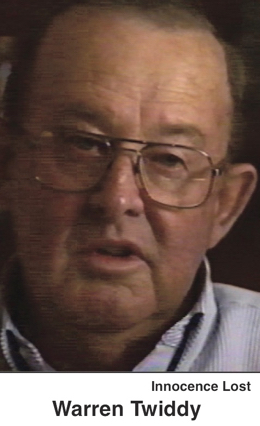Rascals case in brief
In the beginning, in 1989, more than 90 children at the Little Rascals Day Care Center in Edenton, North Carolina, accused a total of 20 adults with 429 instances of sexual abuse over a three-year period. It may have all begun with one parent’s complaint about punishment given her child.
Among the alleged perpetrators: the sheriff and mayor. But prosecutors would charge only Robin Byrum, Darlene Harris, Elizabeth “Betsy” Kelly, Robert “Bob” Kelly, Willard Scott Privott, Shelley Stone and Dawn Wilson – the Edenton 7.
Along with sodomy and beatings, allegations included a baby killed with a handgun, a child being hung upside down from a tree and being set on fire and countless other fantastic incidents involving spaceships, hot air balloons, pirate ships and trained sharks.
By the time prosecutors dropped the last charges in 1997, Little Rascals had become North Carolina’s longest and most costly criminal trial. Prosecutors kept defendants jailed in hopes at least one would turn against their supposed co-conspirators. Remarkably, none did. Another shameful record: Five defendants had to wait longer to face their accusers in court than anyone else in North Carolina history.
Between 1991 and 1997, Ofra Bikel produced three extraordinary episodes on the Little Rascals case for the PBS series “Frontline.” Although “Innocence Lost” did not deter prosecutors, it exposed their tactics and fostered nationwide skepticism and dismay.
With each passing year, the absurdity of the Little Rascals charges has become more obvious. But no admission of error has ever come from prosecutors, police, interviewers or parents. This site is devoted to the issues raised by this case.
On Facebook
Click for earlier Facebook posts archived on this site
Click to go to
Today’s random selection from the Little Rascals Day Care archives….
Click for earlier Facebook posts archived on this site
Click to go to
Today’s random selection from the Little Rascals Day Care archives….
What happens to kids programmed with lies?
 March 2, 2012
March 2, 2012
In 1995 John Money, professor emeritus of medical psychology and pediatrics at Johns Hopkins University, asked:
“What happens to these kids who have been programmed to believe a delusion?…. What on earth are we doing to this generation of children who are carrying the lies for us?”
For those alleged child-victims who testified in day care abuse cases, the urge to forget and to stay silent must be strong indeed. Who wants to believe he was so misused by his own parents, not to mention by therapists and prosecutors? Who wants to summon the courage to look back at the ugly truth and to take it public?
One exception was Kyle Zirpolo, who came forward in 2005 to apologize for his role in the McMartin Pre-school case.
Mr. Attorney General, here’s chance to do right
 Aug. 13, 2012
Aug. 13, 2012
I wrote Mark Davis, general counsel to Gov. Bev Perdue, to ask that she issue a “statement of innocence” on behalf of the Edenton Seven. This is Davis’s response: “Because the Attorney General’s Office handled the appeals in the cases you reference in your letter, I think that office is in the best position to evaluate this issue. I suggest you contact them regarding this matter.”
So noted. This, then, is from a letter I sent last week to Roy Cooper, attorney general of North Carolina:
When the Duke lacrosse case collapsed in 2007, you granted the defendants a “statement of innocence.” Although the statement was not a formal legal document, as I understand it, it clearly demonstrated your commitment to making amends for a wrongful prosecution by the State of North Carolina.
I am requesting that you take similar action on behalf of the defendants in the notorious Little Rascals Day Care case.
For more than a decade, beginning in the 1980s, day care centers across the United States were victimized by a wave of wholly unsubstantiated charges of “ritual sexual abuse.” The testimony of child-witnesses, corrupted by misguided therapists, resulted in dozens of convictions and incarcerations.
In all these cases, charges eventually were dropped, convictions overturned or plea agreements accepted with no admission of guilt.
Today there is no dispute among respected psychiatrists, psychologists and social scientists: The defendants were innocent victims of a “moral panic” that bore striking similarities to the Salem witch hunts 300 years earlier.
One of the most prominent of these prosecutions, of course, was the Little Rascals case in Edenton. Between 1991 and 1997 the PBS series “Frontline” devoted a total of eight hours to the plight of the Edenton Seven, leaving millions of viewers appalled at North Carolina justice.
After the longest and costliest trial in state history, Robert Kelly was convicted of 99 counts of child abuse and sentenced to 12 consecutive life sentences. He served six years before the North Carolina Court of Appeals overturned his conviction.
Dawn Wilson was convicted on five counts of child sex abuse and given a life sentence. She served two years in prison or under house arrest. The Court of Appeals also overturned her conviction.
Betsy Kelly and Scott Privott both agreed to plea deals with no admission of guilt.
Charges against Robin Byrum, Darlene Harris and Shelley Stone were dropped.
After the defendants were released, however, prosecutors continued to insist they were guilty. Exoneration was willfully withheld.
The Little Rascals case not only shattered the lives of the defendants, but also left a deep and ugly stain on the reputation of the State of North Carolina.
In 2001, Massachusetts Governor Jane Swift signed a resolution proclaiming the innocence of the victims of the Salem Witch Trials.
In time, such victims of the ritual-abuse day-care panic as the Edenton Seven will surely receive similar exoneration. Why not now? Why not in North Carolina? This is an opportunity to demonstrate moral leadership on a national scale.
I blog about the case at littlerascalsdaycarecase.org, where you will find an extensive archive and updates. I would be eager to provide additional facts by e-mail or to meet with you in Raleigh at your convenience.
Mr. Cooper, I appreciate very much your attention to reviewing this case and to perhaps mitigating the profound injustice suffered by these seven innocent North Carolinians.
I’ll post his response, of course.
There was good reason children weren’t eager to accuse
Aug. 31, 2012
“Children don’t just come running out of their houses screaming, ‘I’ve been molested!’”
– Assistant attorney general Bill Hart, justifying to the Associated Press (Dec. 31, 1989) why the prosecution’s serial allegations were taking so many months to come to light.
In a case typified by overstatement, Hart’s excuse for delay proved to be a most revealing understatement. Those children resisted mightily and at length before being manipulated into “screaming, ‘I’ve been molested!’”
It wasn’t only defendants who suffered wrongfully
 March 17, 2015
March 17, 2015
“Warren Twiddy, 68, father of defendant Betsy Kelly, said he’s been ‘shunned, blocked out’ by some residents and nearly run out of his church.”
– From “Trial rips fabric of community” by Mark Mayfield in USA Today (March 20, 1992)
“Twiddy sold his insurance business and exhausted his retirement savings to pay his daughter’s legal fees. Old friends, he says, won’t even say hello on the street. Clients canceled policies after his daughter was indicted.”
– From “Town’s pain is revived by TV film” by Andrea Stone in USA Today (July 22, 1993)
“Twiddy admits… some bitterness toward his neighbors, who ignored him at church and at the country club.
“ ‘Before, the bulletin board was full with places we were supposed to be up ’til Christmas,’ he said. ‘After this, nothing, buddy.’ ”
– From “Talk of new trial makes Edenton shudder” by Carol D. Leonnig in the Charlotte Observer (Sept. 10, 1995)
“Our need to matter and our need to belong are as fundamental as our need to eat and breathe. Therefore ostracism – rejection, silence, exclusion – is one of the most powerful punishments that one person can inflict on another.
“Brain scans have shown that this rejection is actually experienced as physical pain, and that this pain is experienced whether those that reject us are close friends or family or total strangers, and whether the act is overt exclusion or merely looking away….”
– From a delanceyplace.com summary of “The Pain of Exclusion” by Kipling D. Williams in Scientific American (January/February 2011)
The misery caused by wrongful prosecution of the Little Rascals case extended far beyond courtrooms and jail cells. Defendants’ family members such as Betsy Kelly’s father endured many years in a hell of ostracism.
Warren Twiddy died in 2012. He was 89.











0 CommentsComment on Facebook